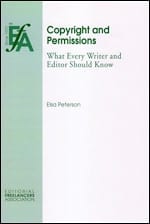As an author of several textbooks and ancillaries over a couple of decades, Kevin Patton, professor of Life Science at…
How MOOCs can offer opportunities for textbook sales
The rapid rise in popularity of massive online open courses (MOOCs) may benefit students and textbook authors alike by increasing…
5 Textbook authors share advice on coauthoring relationships
Q: “I am currently writing on my own but considering taking on a coauthor. What are some different ways that…
How to reach out to potential textbook publishers
Q: “I am interested in researching the types of textbooks that currently exist regarding preparing a student for a job…
Insights on working with editors: An interview with Elsa Peterson
 Elsa Peterson has more than 20 years of experience in textbook and academic publishing as a freelance permissions editor, picture researcher, and developmental editor. Her most recent in-house position was as a senior developmental editor for psychology with McGraw-Hill Higher Education. Peterson recently authored a brief and accessible guide to copyright in the context of publishing titled Copyright and Permissions: What Every Writer and Editor Should Know (New York: Editorial Freelancers Association, 2012). She has also authored numerous articles about the business and craft of editing, and has presented TAA audio conferences on editing and copyright.
Elsa Peterson has more than 20 years of experience in textbook and academic publishing as a freelance permissions editor, picture researcher, and developmental editor. Her most recent in-house position was as a senior developmental editor for psychology with McGraw-Hill Higher Education. Peterson recently authored a brief and accessible guide to copyright in the context of publishing titled Copyright and Permissions: What Every Writer and Editor Should Know (New York: Editorial Freelancers Association, 2012). She has also authored numerous articles about the business and craft of editing, and has presented TAA audio conferences on editing and copyright.
Completing a major textbook revision: The after-the-fact outline
The after-the-fact outline provides a valuable strategy to help complete a major book or article revision. Sometimes referred to as a reverse outline, I learned of this strategy from Tara Gray, author of the book Publish and Flourish. I have tried most of the advice in her book, and now that I have tried this piece of advice, I had to ask myself: “Why did I wait so long?”
The first thing to point out is that this strategy is not a writing strategy, but a revising strategy. This strategy works best when you have a draft of your article (or a portion of your article) and are ready to rewrite it. It is best if your draft is rough, as you need to feel comfortable with the idea of deleting and/or rearranging large portions of it.






